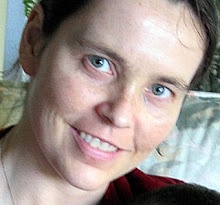Syndrome of inappropriate antidiuretic hormone hypersecretion (SIADH), rhabdomyolysis, superior mesenteric artery syndrome (SMA), esophagogastroduodenoscopy, and anastomosis … just a few of the intimidating terms and word combos I’ve encountered this week. I won’t bore you with the definitions, especially as that would take away the pleasure of looking them up yourselves, or encountering them in your own internships.
These past two weeks have not been vastly different from the first week in terms of interesting and tragic cases. Newly-diagnosed AIDS, brain death from an asthma attack, and the surprisingly frequent hushed declaration during rounds in ICU that "support is being withdrawn" have indeed kept me in a heightened awareness of the friability of life.
And, yes, the victories are there but they seem to be quieter events because they are gradual returns to some level of stability or an improved functional capacity rather than a sudden, dramatic occurrence. The discharge from the hospital is a release, where an admission is a call to action for medical practitioners. What's more, the RDs are not usually involved in the discharge and often only find that their patient has gone home when they disappear from the census.
What is different this past week is that my ability to understand medical information from outside the realm of nutrition is growing so that I can see my role in the patient’s care as part of the medical team. And the synapses are finally forming between the sections of my brain where information about biochemistry and anatomy and micronutrients and physiology were stored during school. It really is all coming together, just like they said it would. I guess "they" know what they're talking about after all.
I had a really great moment this week when a note I’d written suggesting changes to a patient’s TPN order based on the "2009 ASPEN guidelines for the critically-ill obese patient" got a “Thanks” from the doctor written at the bottom of the note. I had to ask one of the RDs, “But what does this mean?” There ensued an exciting 24 hours in which I checked the chart two or three times looking for a new TPN order based on my astute recommendations but, apparently, the “thanks” was just an acknowledgement because a new order never appeared. Still, the dietitians urged me to make a copy for myself of this rare recognition from an MD, especially from a surgeon, and everyone in the office had to read the note to try to discern its specialness. I was exhilarated by the response but saddened that this was such an extraordinary event that it got the whole office in a lather. The same doctor later (coincidentally? probably...) requested a nutrition consult in a medical situation in which he'd never asked for the RDs help before.
On a lighter note, what is it about the nutrition office that attracts chocolate, cake and candy? This week there were five separate deliveries of goodies from coworkers and industry reps. People “stop by” when they’re looking to satisfy their sweet tooth. In an ironic Pavlovian twist, someone from another department told us that when she sees us in the hallways, she thinks of chocolate. I suppose it's not so bad for people to think of something sweet when they see a dietitian, but when I think of dietitians I think of fruits and vegetables.
Come back next week to hear all about how doctors love to overfeed their patients in the hospital...
How to Lose Arm Fat
3 years ago

No comments:
Post a Comment